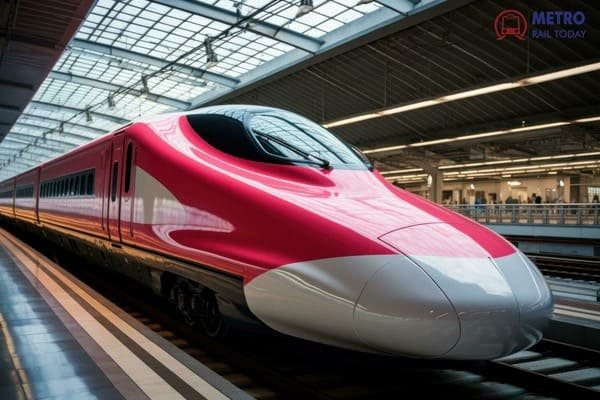India is on track to become a self-sufficient leader in high-speed rail technology with its bold push towards indigenously manufactured bullet trains. This significant shift comes with the country’s ambitious goal to develop its own fleet of bullet trains and advanced signalling systems that meet the requirements of future high-speed rail corridors. Central to this vision is the use of the Vande Bharat platform and the advanced Kavach 5.0 system, which will be a key component of safety and operational efficiency for these bullet trains.
Government officials have revealed that India is preparing to indigenise the production of bullet trains, alongside cutting-edge signalling technology, to be deployed on upcoming standard-gauge corridors. The project is set to build on the learnings from the Mumbai-Ahmedabad high-speed rail corridor (MAHSR), which is already over 50% complete in terms of civil work. With Maharashtra’s elections now concluded, work on these corridors is expected to gain rapid momentum. One of the most exciting developments is the expected launch of the first indigenously developed high-speed train, built upon the Vande Bharat platform. This will include the most advanced form of the automatic train protection system, Kavach 5.0, which is designed to ensure safety at speeds of up to 280 km/h. Indian engineers are working on significant improvements to the train’s bogies and powertrain, which will take around three years to complete.
The goal is to produce trains capable of reaching operational speeds of 250 km/h, allowing India to eventually take on the development of future bullet train corridors independently. While the government is keen on indigenising the production process, negotiations with Japan’s Shinkansen suppliers are still ongoing to ensure collaboration and the supply of modern trains for the MAHSR corridor. In addition to the technical advancements, the project has also created significant job opportunities. The Integral Coach Factory (ICF) and BEML are leading the efforts to manufacture the new trains, with the first set of coaches being priced at ₹27.86 crore each. BEML’s role in this venture is a testament to India’s growing capability in manufacturing complex transportation systems that will play a crucial role in shaping the country’s infrastructure for the future.
As India inches closer to its dream of a domestic bullet train network, the project holds promise not just for faster travel but also for significant economic and environmental benefits. By relying on indigenous technology and manufacturing, India is positioning itself at the forefront of sustainable and efficient transportation, with the potential to revolutionise the way millions of people move across the country. For the citizens of India, this is more than just a technological achievement; it is a symbol of progress and self-reliance. As these high-speed trains become a reality, they will not only redefine travel time but will also bring India closer to its vision of becoming a global leader in sustainable infrastructure and transportation.


